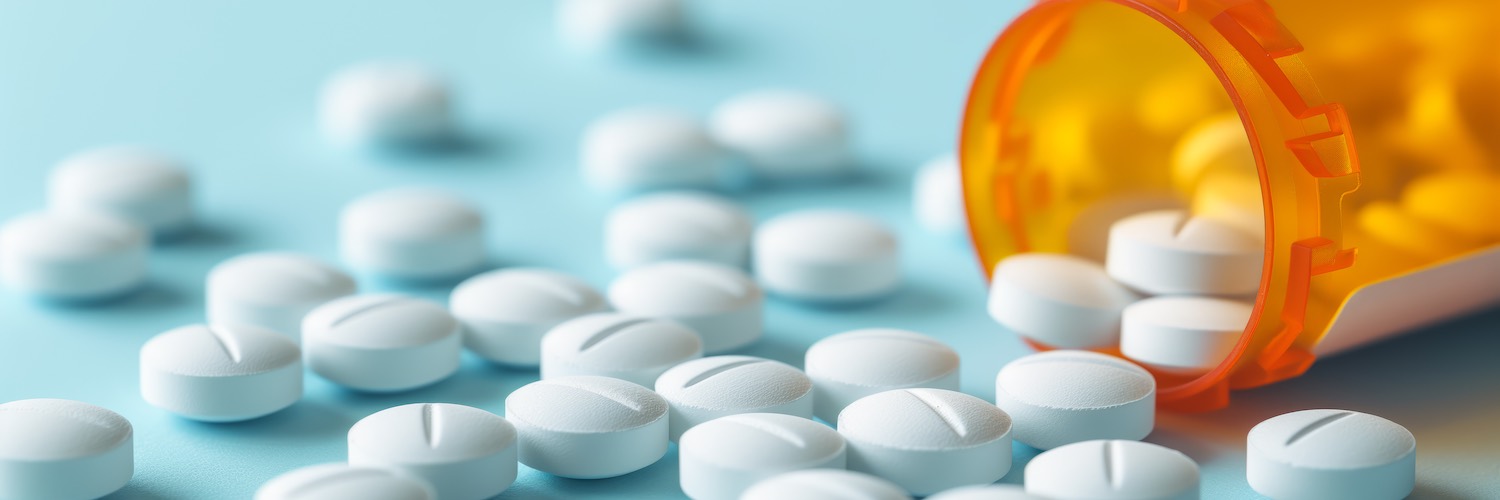Does Long-Term PPI Use Increase the Risk of Dementia?

A recent study has shed more light on the potential risks and complications of long-term proton pump inhibitor or PPI use, showing that long-term use may increase the risk of dementia by over 30%. The study followed patients over 45 who took PPIs for more than four years. The results add to the list of potential side effects of using these drugs past the amount of time indicated.
What Exactly Are PPIs?
Proton pump inhibitors, or PPIs, are medications that began their lives as prescription drugs but are now sold over the counter under brands like Nexium, Prevacid, and Zegerid. These drugs are generically known as omeprazole and others “oles.”
PPIs are incredibly effective in reducing the acid produced by the stomach. They differ from antacids like Tums because rather than neutralizing existing stomach acid, they target the acid-producing receptors in the gut to reduce production at the source. These drugs are indicated for patients with chronic acid reflux, also known as gastroesophageal reflux disease, and are meant to be taken for no more than six weeks. However, partly because of their over-the-counter availability, many patients believe they are harmless and take them far longer. However, there are several potential downsides to this.
Considerations of Under-Treated GERD and PPIs
First, it’s important to understand that GERD is a serious problem. While many dismiss it as just discomfort, the constant wash of gastric juices into the esophagus causes can cause significant problems, including esophagus structure, esophageal ulcers, and a condition known as Barrett’s esophagus, where its lining begins to resemble that of the stomach – this is a pre-cancerous condition that can eventually turn into esophageal cancer.
It’s also important to understand that PPIs do not address the root cause of reflux: a weakened, lower esophageal sphincter. Although acid may be neutralized in the stomach, patients may not experience the acute burning sensation. However, the digestive enzymes in the gut continue to wash onto the esophageal lining and can be similarly caustic.
The acid in our stomachs also serves an essential purpose in controlling bacteria. Without the harsh, acidic environment in the stomach, there is concern surrounding foodborne illness that would otherwise be contained. Significant bacterial infections, including Clostridium difficile or C. diff, can proliferate.
PPI use has also been linked to bone weakening and eventual fractures, which can be a problem for patients with bone density issues like osteopenia or osteoporosis, especially in postmenopausal women.
Other Treatment Options
While many of us experience occasional acid reflux from a particularly large or spicy meal, a percentage of those patients have GERD, which is defined by multiple episodes of acid reflux consistently over several weeks. Dietary and exercise improvements are essential and can be the first line in reducing gastric reflux. Eating well and losing weight reduces abdominal pressure and helps keep gastric juices where they belong.
The patient may also benefit from lifestyle changes, including eating earlier in the day, not eating within two hours of bed, and propping up on a wedge or sleeping on their left side. Avoiding spicy and or acidic foods and fatty foods may also be helpful.
Of course, there is also medical therapy, which we discussed above. Any antacids, like Tums, can help for a while, but eventually, the reflux becomes bad enough that even these medications are insufficient. At this point, a primary care physician may suggest PPIs, which can be taken for up to six weeks.
If PPI therapy is unsuccessful, or the patient has not been able to change their lifestyle sufficiently during that time, we start to discuss curative and permanent options.
A Surgical Solution
The gold standard in surgical care for reflux is a fundoplication, where the top of the stomach is wrapped around the lower part of the esophagus to offer added strength and support to the Lower Esophageal Sphincter. This is a very effective and minimally invasive procedure that comes with some drawbacks, including difficulty belching and vomiting and resultant gas bloat syndrome. That said, partial wraps, known as Toupet and Dor, have been developed to lessen these issues.
Other surgical options include hiatal hernia repair where the diaphragm is closed around the esophagus. This is also performed laparoscopically and can be very effective in helping with reflux.
Finally, gastric bypass and gastric sleeve may be appropriate options for overweight/obese patients. As mentioned earlier, losing weight may reduce pressure in the abdomen and decrease reflux. Although sleeve is generally not considered to be good anti-reflux surgery, we have found that sleeve with hiatal hernia repair can improve reflux in some patients.
A Non-Surgical Options
A less invasive, non-surgical option, known as TIF or Transoral Incisionless Fundoplication is a procedure where the doctor inserts a scope down the throat to tighten the lower esophageal sphincter. It is often combined with hiatal hernia repair for maximal improvement for reflux. You can see more about this procedure below.
Next Steps
Most importantly, encourage patients not to ignore the symptoms of GERD and to seek professional help from a medical practice that specializes in GERD. This allows you to discuss all the treatment options while also managing potential risks.
Call us to schedule a consultation to learn more, get a proper diagnosis, and understand your treatment options.

